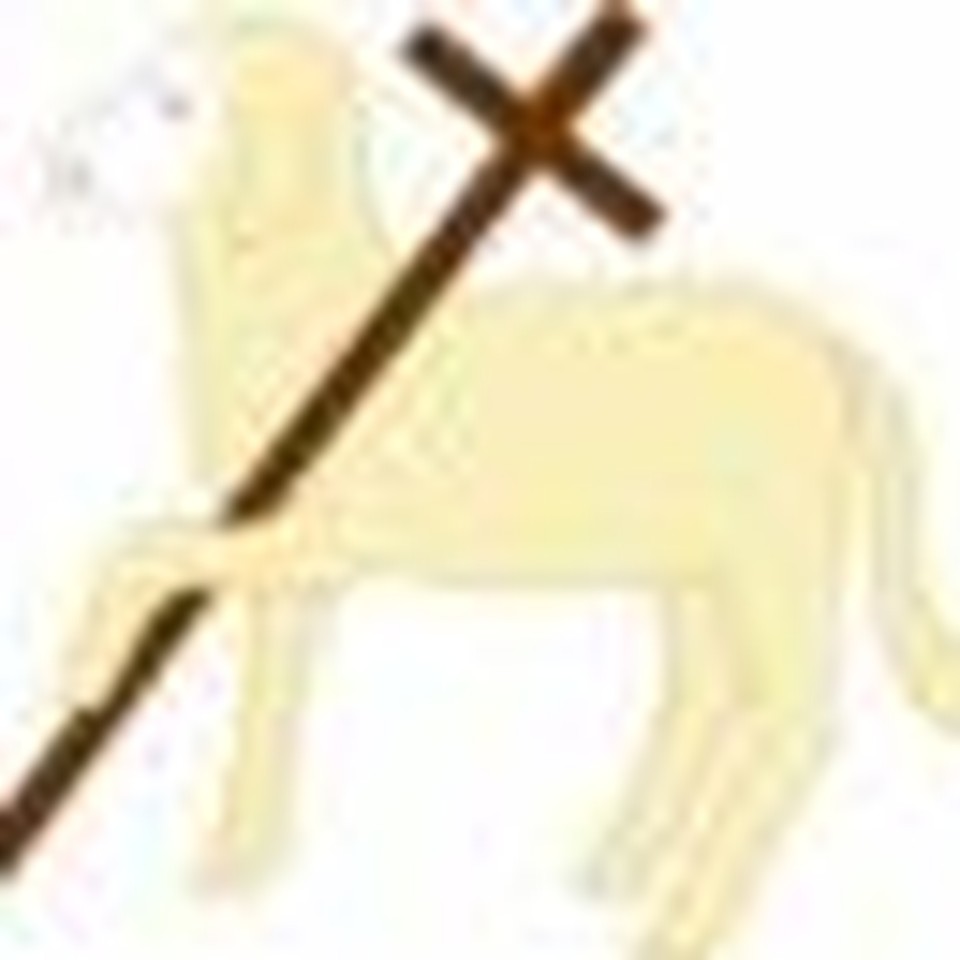What Are We Singing: Lamb of God

The first time a “lamb” and “God” are mentioned together in Scripture is in Genesis 22. In this beloved and often difficult to comprehend chapter concerning the life of Abraham, we have the devoted patriarch, way beyond his years and faith fulfilled, along with the son of God’s promise, Isaac. Years have passed (some say thirty-three) and God calls Abraham to an ultimate test.
God said, “Take your son, your only song, Isaac, whom you love, and go to the region of Mount Moriah. Sacrifice him there as a burnt offering on one of the mountains I will tell you about.”
Early the next morning--the story goes--Abraham got up, readied himself and his son and headed for Moriah supposedly to make a burnt offering to God. On the third day, when God revealed to Abraham the proper mountain for sacrifice, Abraham placed the wood for the offering on Isaac’s back while he carried the fire (or fire starter) and the knife.
Isaac became perplexed and asked his father, “Where is the lamb for the burnt offering?”
Abraham answered, “God himself will provide the lamb…”
The Sacrificial Lamb
In Old Testament Jewish worship, the lamb was of utmost importance. Both morning and evening sacrifices involved the slaying of a lamb. On the Sabbath the number of offerings was doubled and during some of the festivals a greater number of lambs were laid on the altar. The lamb of the Passover held a special significance.
During the time when the Hebrews were slaves in Egypt and as God prepared them to be freed, he instructed Moses thusly:
Tell the whole community of Israel that on the tenth day of this month each man is to take a lamb for his family, one for each household. If any household is too small for a whole lamb, they must share one with their nearest neighbor, having taken into account the number of people there are. You are to determine the amount of lamb needed in accordance with what each person will eat. The animals you choose must be year-old males without defect, and you may take them from the sheep or the goats. Take care of them until the fourteenth day of the month, when all the people of the community of Israel must slaughter them at twilight. Then they are to take some of the blood and put it on the sides and tops of the doorframes of the houses where they eat the lambs. (Exodus 12: 3-7)
At midnight the Lord came down to strike the firstborn of the Egyptians but when he saw the blood over and beside the doors of the Hebrew homes, he “passed over.”
After the exodus of the Hebrews, God instructed Moses (and Moses instructed the people) concerning the celebration of Passover. Numbers 28 includes the following: On the fourteenth day of the first month the Lord's Passover is to be held…Present to the Lord an offering made by fire, a burnt offering of two young bulls, one ram and seven male lambs a year old, all without defect…Prepare these in addition to the regular morning burnt offering. In this way prepare the food for the offering made by fire every day for seven days as an aroma pleasing to the Lord; it is to be prepared in addition to the regular burnt offering and its drink offering. On the seventh day hold a sacred assembly and do no regular work. (Numbers 28: 16-25)
Once again, we see the lamb and, once again, used for the purpose of sacrifice. Additionally and immediately following these commands, for the Feast of Weeks (Pentecost), the Feast of Trumpets (Rosh Hashanah), the Feast of Tabernacles (Succoth), and the Day of Atonement (Yom Kippur), God called for the sacrifice of lambs in the same way he required for the celebration of Passover.
What the Feasts MeantThere is no way in the span of a few words to adequately explain the feasts and other holy days of the Jewish people. To say they are and/or should be important to note and understand for Christians today is an understatement. Much of what Jesus did and will do is centered on these sacred dates.
Passover is a time to remember that the Lord brought Israel out of slavery. For the Christian, it is affiliated with Easter, a time to remember that as God required of Abraham on Moriah concerning his only son Isaac, “God so loved the world, he gave his only begotten Son, that whoever believes in him will not perish but have eternal life.” (John 3:16)
The Feast of Weeks/Pentecost is a time to remember—with joy and thankfulness—the Lord’s blessing of the harvest. As Christians, we remember that it was during this celebration the Holy Spirit came down “like the blowing of a violent wind…” and … “tongues of fire that separated and came to rest on each of them.” (Acts 2: 1-4) We, as Christians, can remember that the Holy Spirit enables us to bring in the “harvest of souls.”
Rosh Hashanah is a time in which Israel presents itself before the Lord to ask for his favor. It is also known as the Feast of Trumpets and, as Christians, is a time we can remember Paul’s words written to the Thessalonians, “For the Lord himself will come down from heaven with a loud command, with the voice of the archangel, and with the trumpet call of God.” (1 Thessalonians 4:16)
The Feast of Tabernacles/Booths memorializes the journey the ancient Hebrews took from Egypt to the Promised Land. It was a time when God dwelt among the people—going before and behind them—in extraordinary, supernatural ways. It was a time of “God with us.” As Christians, we can remember that when Jesus came to earth—to live within that very Promised Land promised to his ancestors—he was, in fact, God dwelling among man. Immanuel.
Yom Kippur/The Day of Atonement is a time for the priests and people to be cleansed (atoned) from their sins from the past year. As Christians we can remember that, upon the old rugged cross, Jesus atoned our sins once and for all.
O Lamb of God, Sweet Lamb of God
While ministering and baptizing near Bethany on the other side of the Jordan River, John the Baptist looked up and saw Jesus approaching. “Look,” he said to the people there. “The Lamb of God, who takes away the sin of the world!” (John 1: 29)
Both Peter and Paul wrote of Jesus in terms of being “the Lamb.”
The book of Revelation gives reference to Jesus as the Lamb an impressive twenty-nine times.
A search within the pages of a Lexicon reveals that when Jesus spoke to Peter in John 21, saying “feed my lambs,” he used a word that, in Greek, is arnion. It is this same word that is used in Revelations to describe Jesus in terms of being the Lamb. So then what was Jesus saying to Peter? Be like me…willing to lay down your life as a sacrifice.
Till I Am Just a Lamb of God
The song “Lamb of God” talks about more than just one “lamb.” In the verses and chorus, we see Jesus—sinless and humble, the Son of God and God with us—and we see ourselves. “Wash me in your precious blood till I am just a lamb of God.”
What does it mean, then, to be God’s lamb? We, too are to strive to be like Jesus—drawn to Him as a lamb is drawn to the shepherd (for Jesus is our Great Shepherd), washed pure, living humble lives, and—as Jesus…and Peter…and the martyrs of the faith before us—willing to sacrifice our lives for the One who sacrificed His for us.
No wonder it is that within the words of this song, as our hearts beat fast and our chests tighten, we cry out, “Oh Lamb of God, sweet Lamb of God, I love the holy Lamb of God!”

Originally published December 05, 2007.







